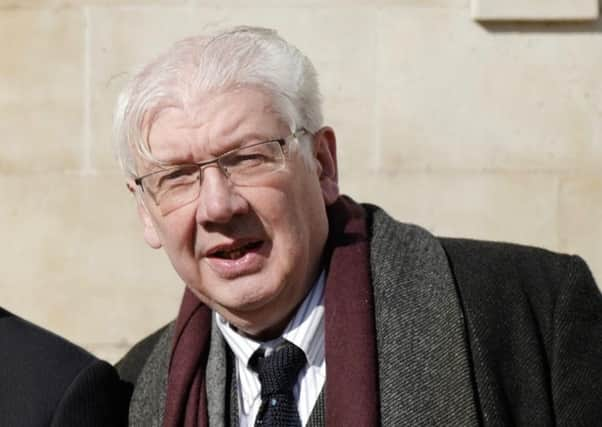Tory peers offer no support for government's NI legacy proposals


The Wednesday evening debate featured Tory, Labour, Lib Dem, DUP and UUP members, as well as a range of Cross Benchers, commenting on current government proposals to deal with Northern Ireland’s legacy.
A common thread was the ‘imbalance’ of current investigations of security forces compared to terrorists - and calls for a bar on prosecutions for veterans who were previously investigated. NI veterans have frequently opposed a bar as they feel it would smear their characters.
Advertisement
Hide AdAdvertisement
Hide AdThe DUP’s Lord Browne noted that a 2017 Defence Committee report referred to a proposed statute of limitations. He said: “My party, the DUP, is open to consideration of a UK-wide statute of limitations for soldiers and police officers who face the prospect of prosecution in cases — this is very important — that have previously been the subject of full police investigations.”
UUP peer Lord Empey said most victims see the current proposals “as another pay-off to Sinn Féin, to help it rewrite history and hound retired police and soldiers”. He added: “Terrorists have no records and they will not tell the truth. The Government’s commitment to release records is not matched by the Irish Government, who reserve the right to redact documents.”
Conservative Lord King of Bridgwater asked if it was “really sensible to keep going back over all this old ground” and suggested spending the money on reconciliation measures instead. Similarly, Tory Lord Astor said he hoped the Secretary of State will “do what she can, by whatever means, to prevent ex-servicemen being hauled through the court in their old age when they have already been investigated - especially when there is a perception that terrorists are being treated more favourably”.
Viscount Hailsham, another Tory, argued for “a statutory bar” in relation to all killings or woundings prior to 1998, with Tory Earl Attlee saying he would “strongly support” such a bar where an incident had been reported and properly investigated “no matter what my friends in the Government’s Whips’ Office said”.
Advertisement
Hide AdAdvertisement
Hide AdQUB historian and Cross Bencher Lord Bew claimed “one of the key people” in the DUP had “already moved away in public” from aspects of the proposed Historical Investigations Unit. He added: “Some movement is now going on. I do not know where the chips will fall, but these [proposed] arrangements will not bring about any form of reconciliation.”
Former NI Secretary Lord Hain said it was unjust to prosecute retired security forces members. “Proposing a quasi-amnesty or statute of limitations must be done for all, or not at all,” he added. His proposal was endorsed by another former NI Secretary, Lord Murphy.
Concluding the debate for the government, Lord Duncan emphasised that consultation was ongoing - until 5 October - but affirmed that justice must still be pursued in both state and non-state cases.
Reflecting on the debate, UUP Councillor Jeffrey Dudgeon said it was “especially significant for the breadth of speakers who were concerned at the utterly inequitable nature of the proposed Bill. None expressed any significant support. The Prime Minister cannot proceed without a radical review of the proposals and the introduction of fairness, or their abandonment.”